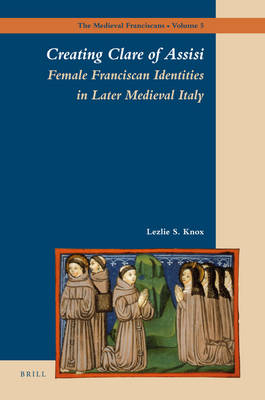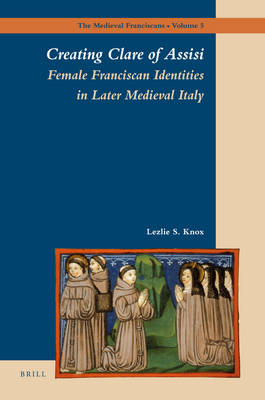
- Afhalen na 1 uur in een winkel met voorraad
- Gratis thuislevering in België vanaf € 30
- Ruim aanbod met 7 miljoen producten
- Afhalen na 1 uur in een winkel met voorraad
- Gratis thuislevering in België vanaf € 30
- Ruim aanbod met 7 miljoen producten
Zoeken
€ 224,45
+ 448 punten
Omschrijving
Earlier scholarship has characterized female Franciscanism as an institution established by Clare of Assisi in collaboration with Saint Francis. This understanding is anachronistic, however, and overlooks the more complicated disputes over what it meant for enclosed women to have a mendicant vocation. This book clarifies Clare's contributions to these debates by distinguishing the historical figure from the uses made of her legacy by the papacy, the Friars Minor, and, most importantly, the enclosed sisters between the thirteenth and fifteenth centuries. By examining the diversity of female communities and their complicated institutional formation in medieval Italy, it examines how and when Clare was appropriated as a model of spiritual authority by the women to shape their identity as Franciscans.
Specificaties
Betrokkenen
- Auteur(s):
- Uitgeverij:
Inhoud
- Aantal bladzijden:
- 244
- Taal:
- Engels
- Reeks:
- Reeksnummer:
- nr. 5
Eigenschappen
- Productcode (EAN):
- 9789004166516
- Verschijningsdatum:
- 29/08/2008
- Uitvoering:
- Hardcover
- Formaat:
- Genaaid
- Afmetingen:
- 165 mm x 246 mm
- Gewicht:
- 544 g

Alleen bij Standaard Boekhandel
+ 448 punten op je klantenkaart van Standaard Boekhandel
Beoordelingen
We publiceren alleen reviews die voldoen aan de voorwaarden voor reviews. Bekijk onze voorwaarden voor reviews.








